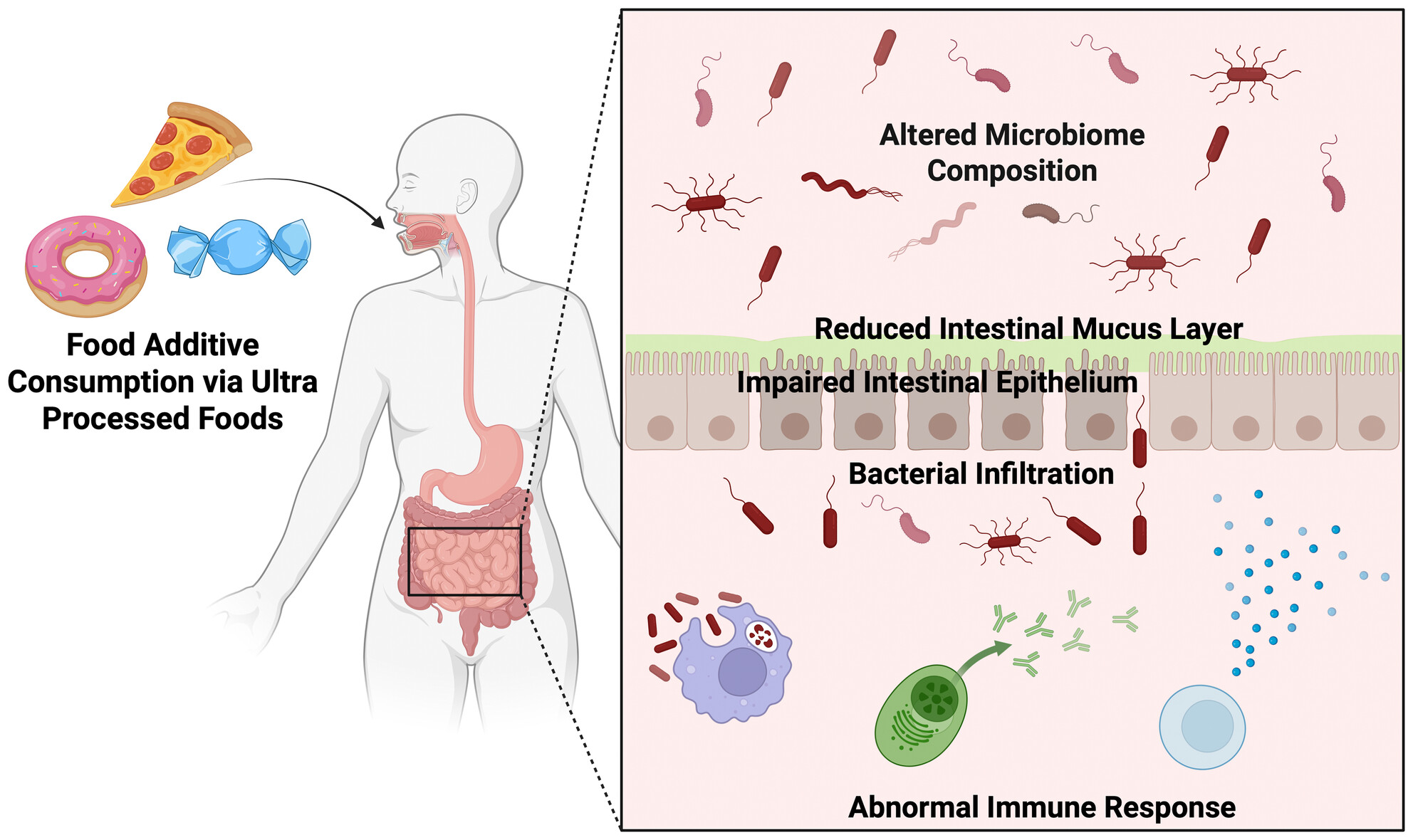New Study in The FASEB Journal Shows Food Additives Could Be Harmful to the Gut
Monday, August 18, 2025Animal studies suggest that some food additives, such as artificial colorants and sweeteners, emulsifiers, and antimicrobial preservatives, could be harmful to gut health. A recent review published in The FASEB Journal summarizes the literature and finds that more clinical studies are needed to assess the potential impacts on humans, especially those with inflammatory bowel diseases. In the meantime, the authors suggest policy changes that could help people make more informed choices.
Food additives are substances that extend the shelf life of foods or beverages or make them more appealing to consumers. For example, the compounds might make a colorless liquid red or help a loaf of bread stay fresh for days. However, these additives have no intrinsic nutritional value, and in fact, they may harm the gastrointestinal tract.
The use of food additives is on the rise, as is the prevalence of gastrointestinal disorders. These disorders are often linked to environmental factors, such as additives. To get a better idea of what is currently known about the health impact of food additives, Waliul Khan and colleagues at McMaster University in Canada searched the literature and summarized their findings.
In the review, the team describes the results of several animal studies that have reported adverse effects of additives on the gut. For example, many artificial food colorants, such as azo dyes, and some artificial sweeteners, can exacerbate intestinal inflammation, alter intestinal permeability, and perturb the gut microbiome in mouse models.
“The current evidence shows that exposure to certain food additives may have detrimental roles on gut health,” says Khan. “Since these additives offer no nutritional value, reducing or even avoiding additive-containing foods may be a beneficial choice for consumers, especially those with gut disorders.”
Because most of the studies the researchers found were based on animal models, they conclude that more human studies are needed to better assess the possible effects of food additives on human gastrointestinal health. In addition, most studies only looked at one food additive in isolation, which is not typically how these compounds are consumed in commercially available foods and beverages.
The researchers argue, however, that enough emerging evidence exists to consider making initial policy changes. On a positive note, they say that the U.S. Food and Drug Administration and the European Food Safety Authority are already re-evaluating food additives. One recommendation that the team proposes is for food manufacturers to list the amount of each food additive on product labels so the public can better track their consumption. They could also include warning labels, as is done in the European Union.
Funding: Canadian Institutes of Health Research, Farncombe Family Digestive Health Research Institute
Read the full article, “Food additives: emerging detrimental roles on gut health,” published in The FASEB Journal.

Graphical Abstract: Chemical food additives are commonly found in ultra-processed foods. Exposure to these additives has been shown to impact the gastrointestinal tract by altering the gut microbiome, reducing the intestinal mucus layer, impairing barrier function, and triggering abnormal immune responses. This suggests that the consumption of these food additives may have negative implications for gut health, highlighting the need for further exploration of these additives at experimental, epidemiological, and clinical levels.